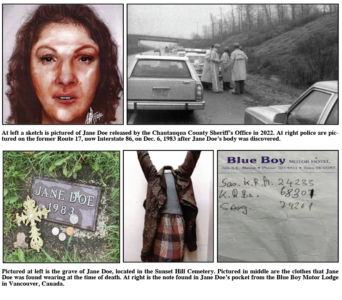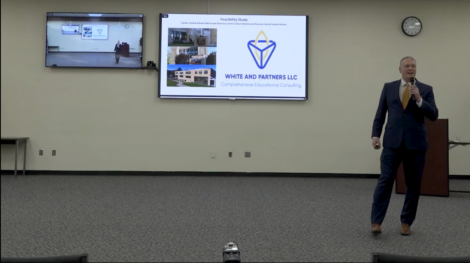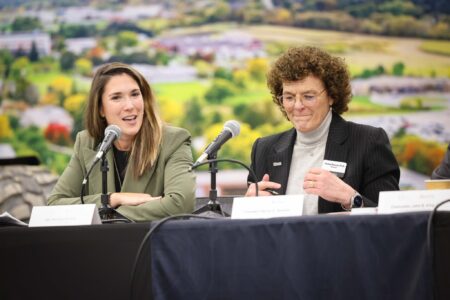Amendment Could Aid Farmers Dealing With Labor Bill
A technical amendment to the Farm Laborers Fair Labor Practices Act could help farmers deal with new state labor requirements for farms.
During a Joint Legislative Public Hearing on the 2020-21 Executive Budget Proposal on Monday, state Senators and Assembly members asked Richard Ball, state agriculture commissioner, about the law’s implementation. Assemblywoman Donna Lupardo, D-Binghamton, noted a change proposed by Gov. Andrew Cuomo in his state budget proposal that would change the definition of a family member.
The law, as passed last year, only excludes immediate family members from provisions like overtime and collective bargaining. New York Farm Bureau officials said the law didn’t recognize that farms often employ extended family members, including in-laws, nieces and nephews. In addition, the Farm Bureau is seeking to alter language in the farm labor bill to properly recognize that farms have professional level employees, including farm managers, who should continue to receive salaried wages.
Lupardo mentioned both issues with Ball during the public hearing and asked if the changes could be approved in time for 30-day budget amendments.
“I am (optimistic) and I believe we can get there on that,” Ball said. “Going to the third level of consanguinity (level of family) is an important fix initially. I think some more additional discussions need to be held around salaried workers, etc., but I’m quite confident we can get there. It’s important to us at the department obviously, important to the industry and I would have to add it’s very important to the governor’s office and to the commissioner of labor.”
Senator Robert Ortt, R-North Tonawanda, asked about the wage board that will be convened to discuss issues like the 60-hour overtime requirement that was included in the Farm Laborers Fair Labor Practices Act. There was criticism last year from legislators representing rural New York that the wage board could decrease the overtime threshold in as little as one year. Ortt asked if a determination could be made in March. Ball responded that is possible, but that he didn’t have much more concrete information to share.
According to the law, the first wage board hearing must be held by March 1. The state Farm Bureau is asking that there be three meetings, one each in the western, central and downstate regions, and that enough time be given so that farm data is available for the board to consider.
“With regard to the wage board, that is up to the Commissioner of Labor to decide the third person on the wage board,” Ball said. “In the current law, as it stands, that happens very soon in March. We talk daily. It is her decision. We have great input there. We have a great conversation. Getting this right is important to her, it’s important to me and it’s important to the governor’s office also. I really don’t know the answer. I can’t give you an answer about the wage board except to say that’s it s great sensitivity to the grower community and to us.”
The farm labor bill was also on the mind of Assemblyman Phil Palmesano, R-Corning, who reiterated many of the concerns raised by Republicans in the floor debate on the bill last year. While the law hasn’t been in effect long, Palmesano asked Ball about the effects so far on farmers. Palmesano was particularly concerned about the 20% decrease in family farms over the past five years and fact that farm labor costs as a percentage of farm income is 36% nationally and 63% in New York state.
“We had, as you know, as this was being contemplated in the last legislative session, I think we saw a tremendous effort by the entire agriculture community,” Ball said. “They pulled themselves together — the veggie growers, the fruit growers, the dairy farmers, the Farm Bureau, into GrowNY. They lobbied all of you. We spent a lot of time together. I think they grew comfortable with the notion of an overtime at 60 hours. They got comfortable with some of the other issues that were coming forward in that bill. They’re uncomfortable with some of the last-minute changes to the bill and some of the language used, but by and large I think the industry benefitted from coming together and having those real conversations with all of you. We continue to have conversations with the Department of Labor, the governor and the industry. I’m encouraged that we’re going to get the details of this correct.”






